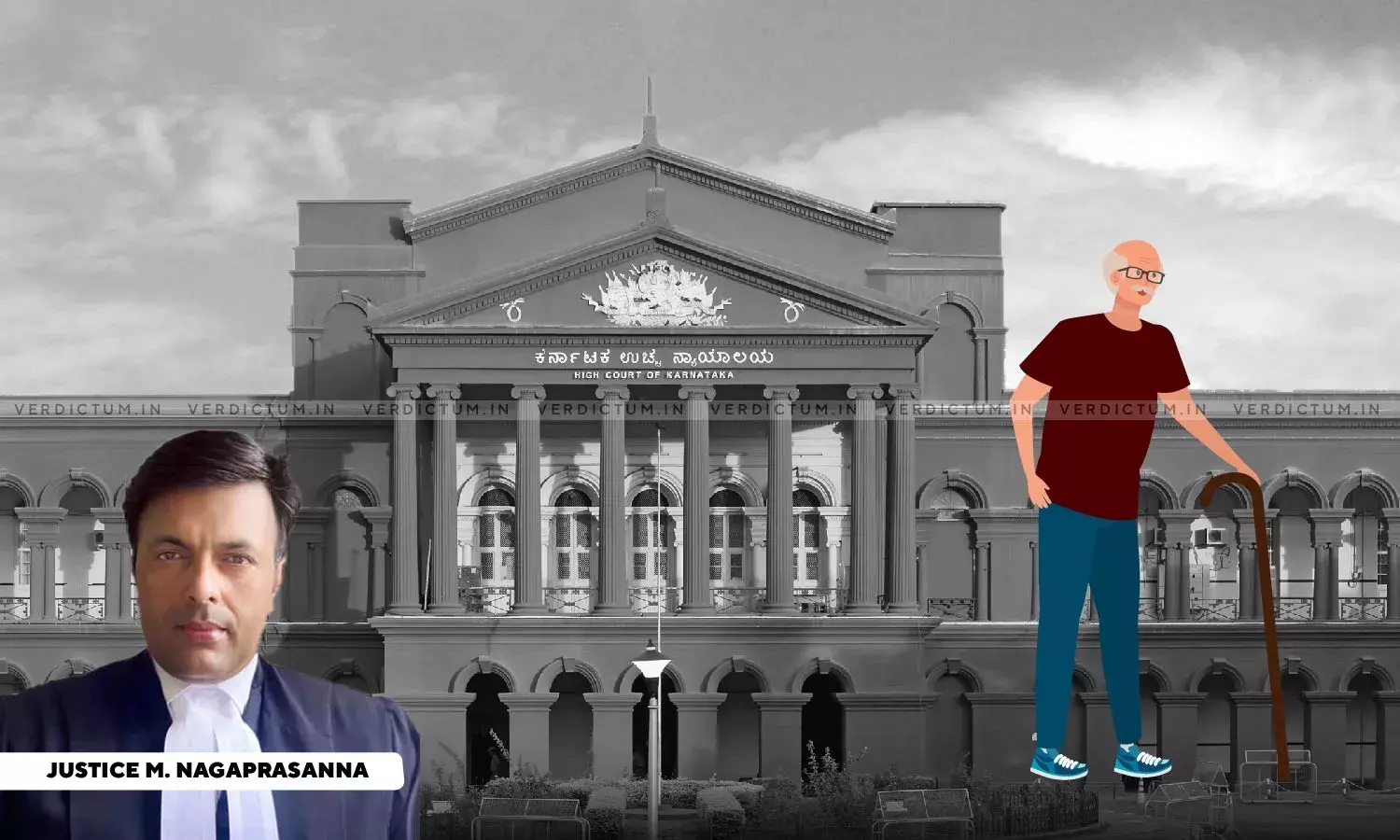Right Of Advocate To Practice U/s. 30 Of Advocates Act Cannot Be Controlled By Sec. 17 Of Senior Citizens Act: Karnataka HC

Justice M. Nagaprasanna, Karnataka High Court
While observing that parties to the lis cannot always be said to be conversant with terms, to be knowing the nuances of the law of evidence, both oral or documentary, as to what is to be produced before the Tribunal, the Karnataka High Court held that legal aid is necessary to such a senior citizen and therefore declared that the petitioner had a right to be represented by a legal practitioner before the Tribunal i.e., before the Assistant Commissioner.
The High Court further ruled that legal aid is a facet of the constitutional right guaranteed under Article 21 of the Constitution of India and such legal aid or legal assistance cannot be stifled or crippled only to tendering advice.
Referring to the judgment rendered by the High Court of Punjab and Haryana in PARAMJIT KUMAR SAROYA v. THE UNION OF INDIA AND ANOTHER [2014 SCC OnLine P&H 10864], a Single Judge Bench of Justice M. Nagaprasanna declared Section 17 of the Maintenance and Welfare of Parents and Senior Citizens Act, 2007 as ultra vires of Section 30 of the Advocates’ Act, 1961 and therefore, unenforceable.
The Bench also observed that the right of an Advocate to practice before the Tribunal which is derived under Section 30 cannot be seen to be controlled by an enactment earlier to it, i.e., in terms of Section 17 of the 2007 Act.
The observation came in answer to a petition seeking to declare Section 17 of the Maintenance and Welfare of Parents and Senior Citizens Act, 2007, to be unconstitutional and has further sought quashing of an order passed by the Deputy Commissioner denying representation of the petitioner by an Advocate in the appeal proceedings before the Deputy Commissioner.
Advocate Mohan Kumara D. appeared for the Petitioner, whereas DSGI Shanti Bhushan appeared for the Respondent.
In this case, the petitioner purchases a property situated in Udupi District in the years 1972 and 2003. Then the petitioner was residing with his son (third respondent). It was alleged that the third and fourth respondents transferred the property owned by the petitioner to their names and thereafter the third respondent began to torture the petitioner, both physically and mentally. After coming into force of the 2007 Act, the petitioner approached the Assistant Commissioner invoking the provisions of the 2007 Act seeking restoration of property to his name alleging that the settlement is fraudulently made by his children. However, the Assistant Commissioner directed that the petitioner and his wife should not be disturbed from the property and their needs also should be taken care of by the children. When the petitioner sought for appeal through a legal practitioner, the Deputy Commissioner rejected the request of the petitioner on the ground that Section 17 of the Act prohibits the representation of a legal practitioner. Hence, the petitioner approached the High Court.
Looking at the age of the petitioner, the Bench found that he could not defend himself in contra-distinction to the vehement defence put up by the children, and this has undoubtedly resulted in a fractured order passed by the Assistant Commissioner as there is only a direction that the petitioner and his wife should not be disturbed from the house but there is no order to maintain the petitioner.
The Bench elaborated that in such cases where the parties are more than 60, 70 or 80 years galore before the Tribunal, they would not be in a position to defend their case and sometimes would become tongue-tied on the vehement opposition put up by the children.
“Apart from the legality of the issue whether the Act would place an embargo or otherwise, the aforesaid facts of the case at hand are grave enough to permit assistance by a legal practitioner. Whether it should be on a case-to-case basis or every applicant has a right to be defended is what is to be answered”, added the Bench.
Therefore, the High Court observed that the kernel of this conundrum becomes the constitutionality of the embargo under Section 17 of the Act and it being repugnant to Section 30 of the Advocates’ Act.
While highlighting that the 2007 Act was specifically promulgated for the protection of the lives of senior citizens as could be gathered from the objects and reasons of the Act, the High Court observed that if the object of the Act was to render protection to the senior citizen, the protection should not be illusive or collusive.
At the same time, the Advocates Act, 1961, permits Advocates to appear before any fora as depicted under Section 30 of the Advocates’ Act, added the Court.
The Bench therefore concluded that in the teeth of the enactment, its purpose and the right of the Advocate under Section 30 of the Act, legal assistance by an advocate cannot but be given to the applicants before the Assistant Commissioner, as well as the Deputy Commissioner.
Cause Title: K. Srinivas Ganiga v. Union of India and Ors.
Click here to read/download the Order

